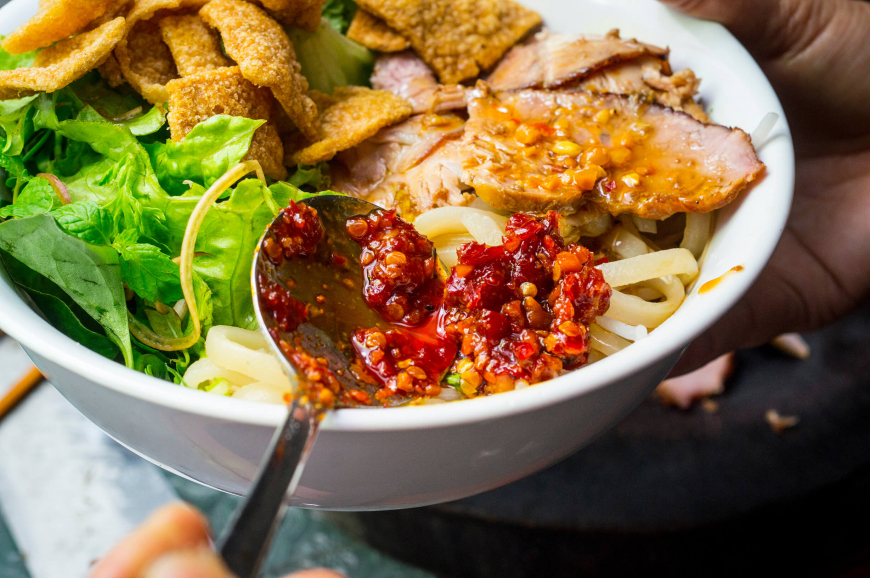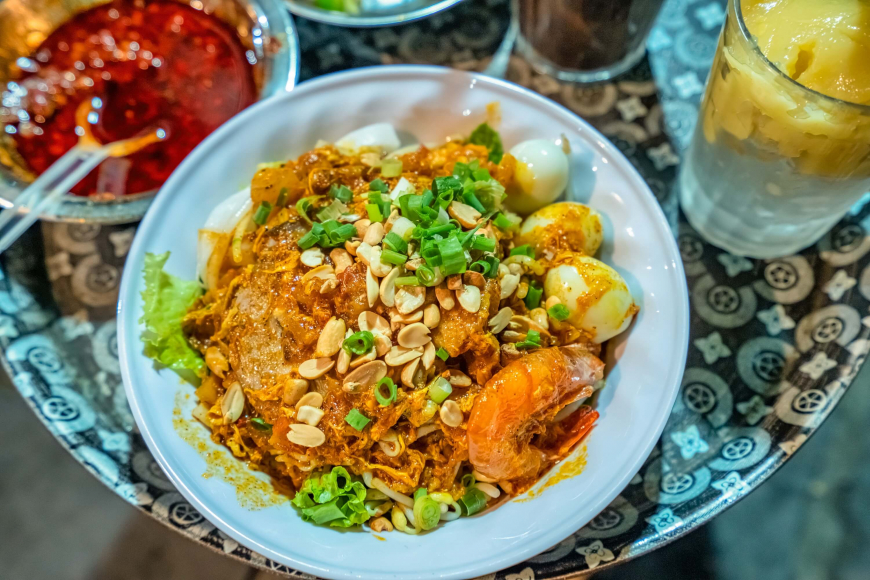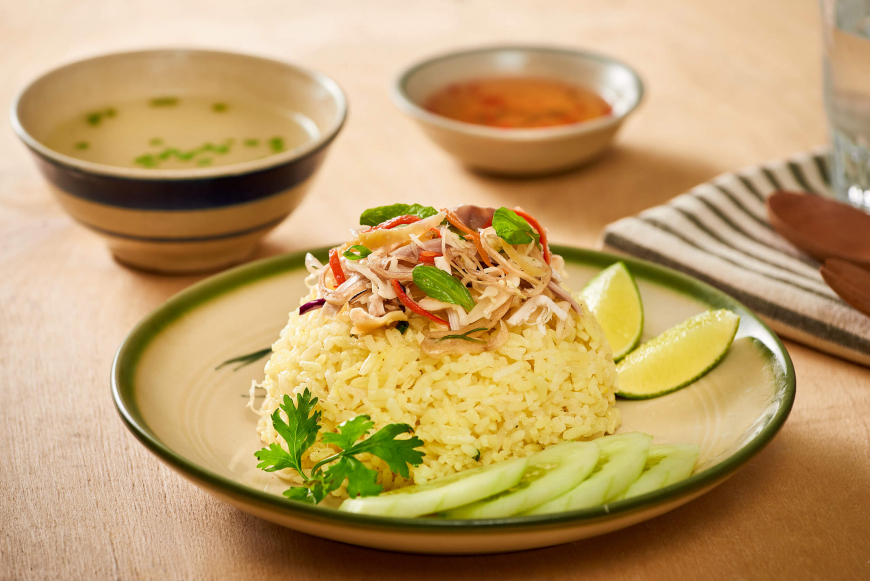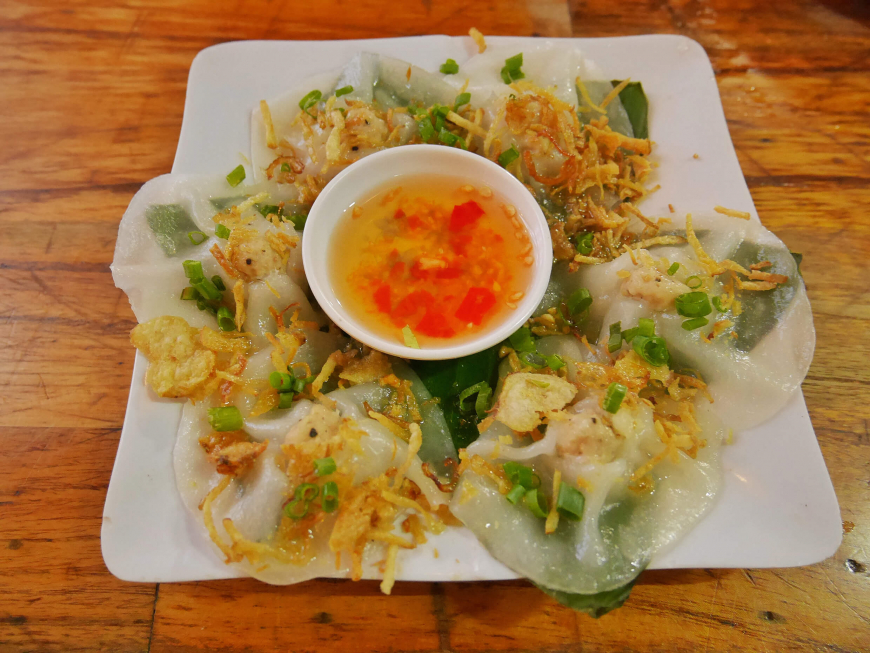Many travellers coming to Vietnam will visit Quang Nam Province, home to the historical gem that is Hoi An Ancient Town.

The province in Central Vietnam borders Laos on the west; and faces the East Sea on the east. 40km away, for a spiritual journey into a peaceful jungle lies the My Son Sanctuary. The complex of stunning, red-brick temples and towers near Hoi An give insight into the architectural temples of Champa civilisation crystallised in long-lasting material sequelae.
Today, its attractions include lush forests, sacred rivers, white-sand beaches, historical relics – and delicious food.
There are many regional variations in Vietnamese cuisine. Since every one of Vietnam’s 63 provinces and cities has its unique cultural history and climate, each boasts its own unique cuisine, with regional dishes associated with the province.
So, what are the local specialities of Quang Nam province? Here are some must-try dishes when you visit the region.
Cao lầu
This has long been the quintessential Hoi An dish – and you’ll struggle to find it anywhere else. So, why is this pork and rice-noodle dish so Hoianian? Well, the noodles are made using distinctly local ingredients, such as lye water and wood ash from trees in the area. The technique for preparing the dough is also highly specific. The fresh herbs and greens are sourced from the nearby Tra Que Vegetable Village. That’s why you’ll seldom see Cao lầu on menus in other regions. While the dish’s origins are hotly debated, the noodles’ resemblance to Japanese udon, plus the Chinese-style char siu pork, attests to Hoi An’s fascinating history as a trading port that brought various nationalities together.

Whatever the origin, do yourself a favour and try it when in Hoi An. Tucking into a freshly assembled, generous bowl of thick, nicely textured noodles – complete with marinated pork slices, fresh greens, and crispy pork crackers − is an experience you won’t soon forget.
Mì Quảng
Of all the dishes, this is probably the one most frequently associated with Quang Nam. You’ll find variations of it at restaurants and street-food stalls across the province. Many foodies living in Vietnam even consider this to be one of the country’s best – but most underrated – noodle dishes.
What makes it unique? Firstly, there’s less broth than there is in many other Vietnamese noodle dishes, such as phở. But rest assured: The ladle you get is big on flavour. Next, the wide, flat, chewy noodles and broth are infused with turmeric, giving the dish a distinctly yellow hue. Meat that’s added can include pork, chicken, shrimp … or a yummy combo. Don’t be surprised to find other tasty nuggets, such as quail eggs or pork sausage, tucked into your heavenly bowl. As with many Vietnamese dishes, fresh veggies and herbs are tossed in. Finally, it’s garnished with crispy pork crackers and peanuts. For extra seasoning, there’s chili, lime, and soy sauce. Locals are extremely proud of this regional dish, so have fun sampling as many variations as you can.

Tam Kỳ chicken rice
Got a big appetite? When foodies think of Tam Kỳ – the beachy city about an hour’s drive from Hoi An – they immediately think of a nourishing, generous plate of chicken rice. It’s so good, the international food magazine Saveur once posed the question: “Is this the best chicken rice in the world?”
The tender chicken, typically cooked with turmeric, sugar, salt, and ginger, is shredded or chopped. Vegetables such as cucumber, coriander, carrots, and onions are added, and everything is served atop or beside yellowed rice flavoured with a yummy broth. Fish sauce, lime juice, and chilies add the final, flavourful touch. Tam Kỳ chicken rice is hearty, and healthy, and will keep your tummy satisfied for a good while. Tuck in!

Bánh bao bánh vạc
This delicacy is unique to Hoi An, which many regards as Vietnam’s foodie capital. It’s a savoury dumpling usually filled with minced pork and shrimp, topped with crispy fried shallots, and served with a sweet dipping sauce (nước mắm chấm). Thanks to its rose-like shape, it’s also known as the ‘white rose dumpling’, but the sweetest thing about it is the story behind it. Apparently, the recipe for making the dumpling dough is a closely-guarded secret. Only the descendants of the original family who made it – and who still provide these dumplings across Hoi An – hold the key to this cryptic culinary knowledge. In old times, rice flour was made using calcium-rich water from the 10th-century Ba Le well. While this is unlikely still the case today, the history just adds to the deliciousness of the dish.




